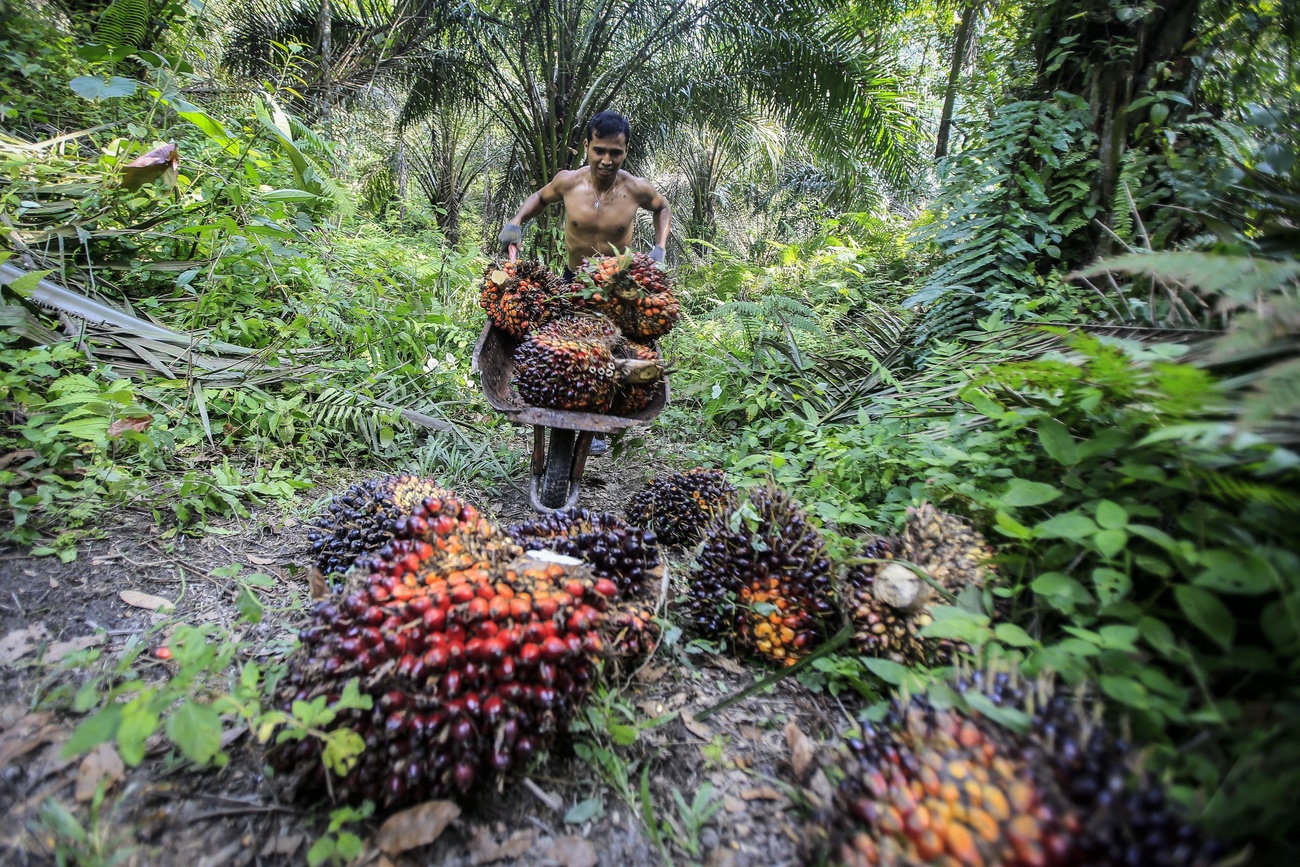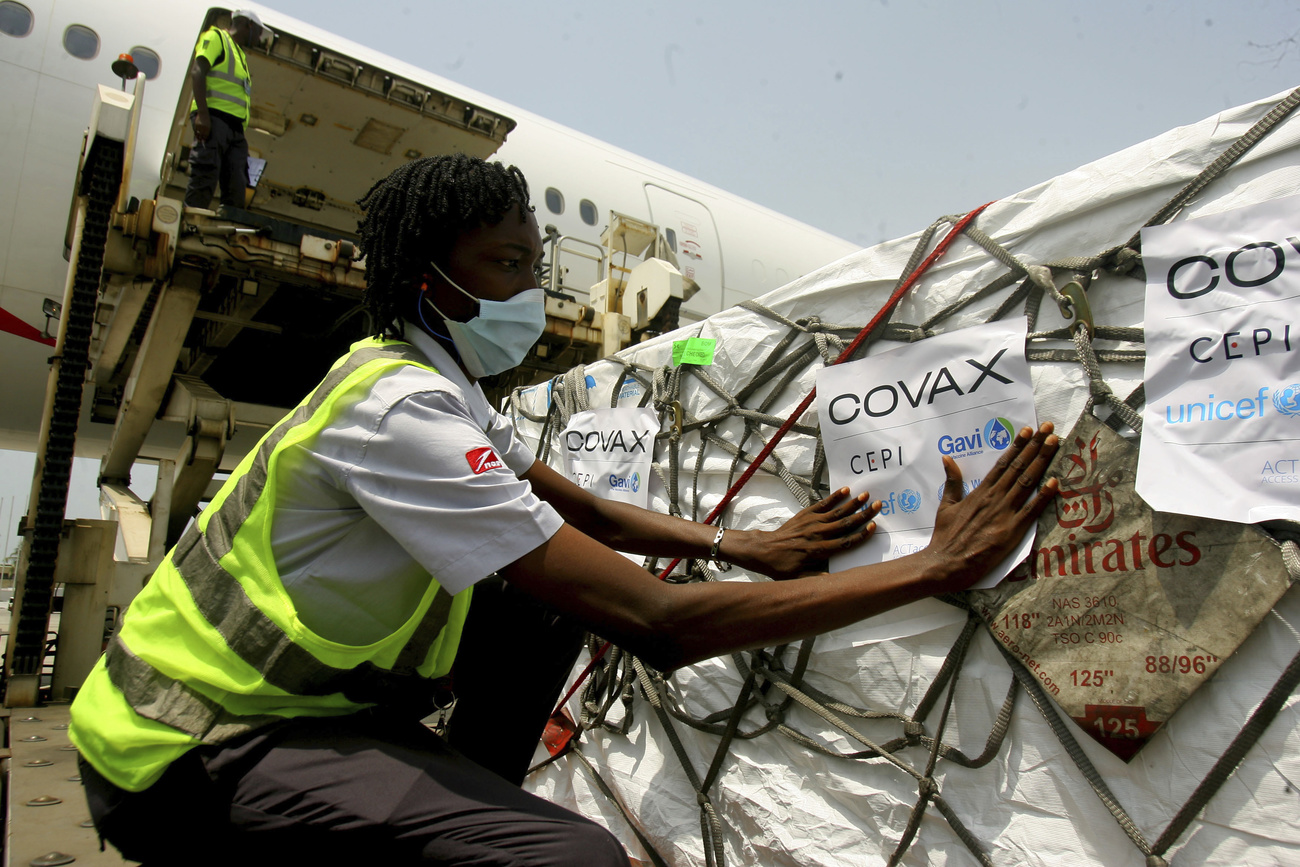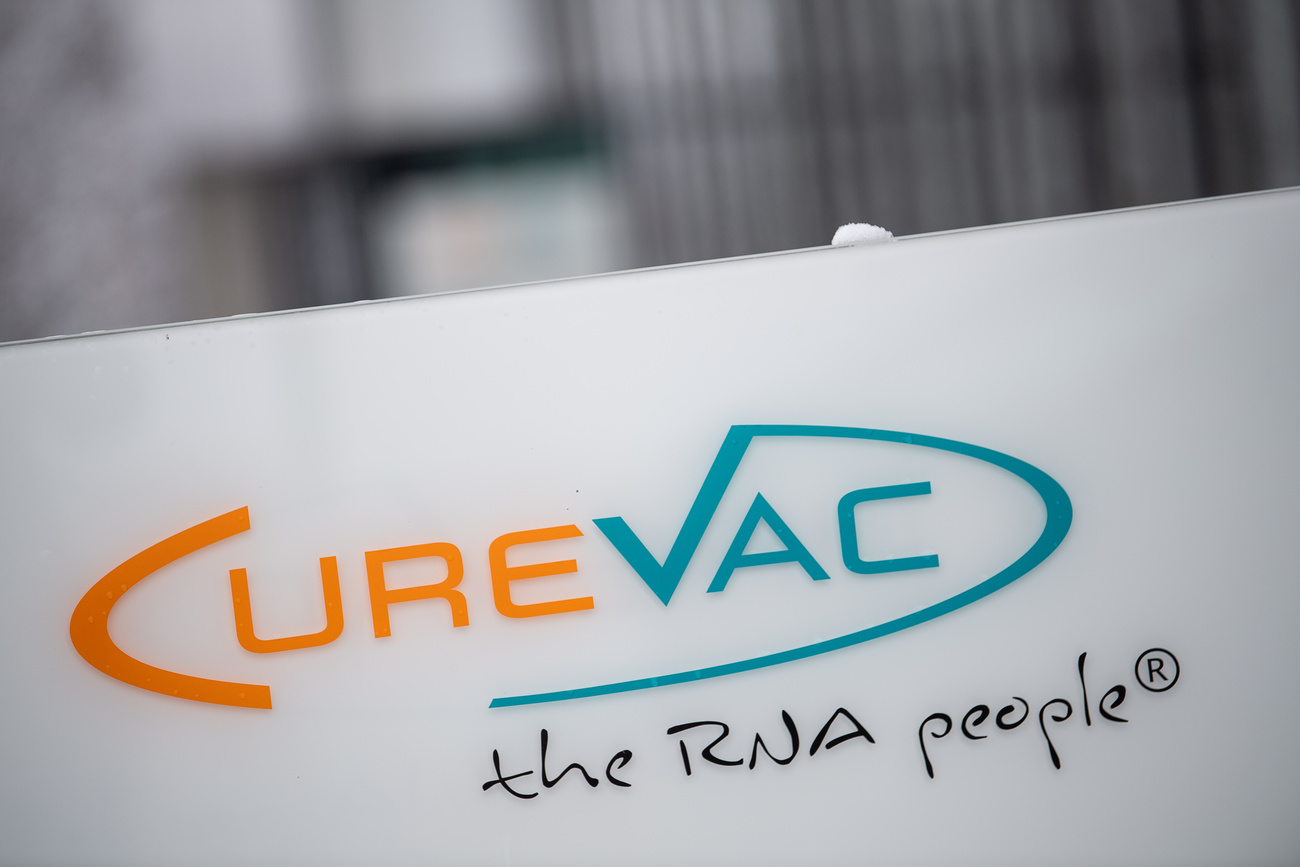No more free rides in free trade deals
The Swiss narrowly voted in favour of a free trade deal with Indonesia on Sunday. Will future agreements also have to win popular support?
It’s rare that the people get to decide the fate of a free trade deal – it’s only happened twice in the last half century in Switzerland. The vote was less about trade and more about palm oil, which has become synonymous with deforestation and the decimation of wildlife like the Orangutan.
I asked my colleague Anand Chandrasekhar, who has been covering the topic for years, for his take on the vote. “The fact that so many people opposed the deal shows that it is firmly cemented in people’s mind that anything to do with palm oil is bad.”
But the fact that a sustainability clause is in the deal should be some consolation prize – one that could become the standard for future deals. As the Tages-AnzeigerExternal link wrote, without such a clause, the deal would most definitely have failed.

More
Swiss free trade deal with Indonesia narrowly survives referendum
“It won’t be easy for the government to sign off on deals like this in the future. Every free trade deal with an environmentally or socially sensitive country or bloc should expect a referendum,” said Chandrasekhar. Swiss President and economics minister Guy Parmelin already hinted that similar clauses could be included in deals under discussion such as that with the Mercosur region, where the clearing of forests for soy and beef production won’t go unnoticed.
Parmelin was quick to clarify that Sunday’s vote “was not a choice of the economy over human rights and the environment”. But Chandrasekhar says that this is still a slim win for the economy, and does a favour for Indonesia, by giving its much-criticised palm oil a stamp of approval.
The vote made it clear that the public is more sensitive to hints that the economy is taking precedence over principles, but the question is how far the government is willing to go. What about “clean gold” in a deal with Peru? “Child labour-free cocoa” out of West Africa? Nothing is for free.
What else caught my eye?
Swiss companies exported 24% more war materiel in 2020. This includes an air defence system to Indonesia. The latest statistics come a couple years after Switzerland relaxed the rules for exporting war material to countries involved in armed conflict. This is likely to stoke the flames of activists who warn the trade flies in the face of neutral Switzerland’s humanitarian ethos. After last year’s rejection of an initiative to ban investments in companies that make weapons, another proposal to anchor the rules for war materiel exports in the Swiss constitution is expected to come for a public vote very soon.
Pressure is mounting for countries to waive patent rules to make more vaccines available. The pharma industry says patents are not a barrier to access to vaccines but NGOS like Public Eye argue that if companies were willing to suspend patents and share know-how other companies could start producing vaccines – and fill shortages. Meanwhile, Novartis signed another deal – this time with CureVac to add manufacturing muscle for its vaccine. Another Swiss firm, Lugano-based Adienne, also announced it will help manufacture the Sputnik vaccine at its factory in northern Italy.

More
Calls intensify for Big Pharma to break monopolies on Covid-19 vaccines
Swiss machinery industry faces more scrutiny over ties with China. The pandemic year wasn’t a boon for the machinery, engineering and metal industry, but it made up some ground thanks to trade with China. The sector now exports four times more to China than two decades ago with the help of a free trade deal signed a few years ago. These closer ties ring alarm bells over potential association with the human rights situation in the western region of Xinjiang. The South China Morning Post reportedExternal link a couple weeks ago that Switzerland is the second highest exporter of textile machinery to the Xinjiang region after Germany. The textile industry has been implicated in alleged human rights abuses of Uighurs and other Muslim minorities in the autonomous region.
Statistics reveal commodity trading’s limited employment impact. According to the government’s rough estimates, around 10,000 people in Switzerland work in the commodity trading businessExternal link for some 900 firms. Given seven of the top ten largest companies by revenue are in the trading business, 10,000 seems pretty modest. But then again, of Glencore’s 145,000 employees worldwide, only 850 are at its HQ in Baar, and trading isn’t exactly labour intensive. What’s perhaps more interesting than the numbers is the nine-page explanation of howExternal link complex it is to estimate the number of people and firms in commodity trading.
Looking ahead: The European Parliament determines next stepsExternal link for an EU-wide law on corporate due diligence.
Feedback or story tips? Send me a message: jessica.davis@swissinfo.ch
Thanks for reading.

In compliance with the JTI standards
More: SWI swissinfo.ch certified by the Journalism Trust Initiative












You can find an overview of ongoing debates with our journalists here . Please join us!
If you want to start a conversation about a topic raised in this article or want to report factual errors, email us at english@swissinfo.ch.